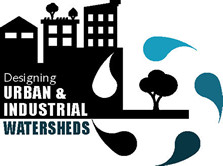
| Oct. 30 - Nov. 2, 2003 Center for Technology & Environment Harvard School of Design |  |
| [ Home ] | [ About ] | [ Schedule ] | [ Masters Workshops ] | [ Register ] | [ Directions ] |

| Oct. 30 - Nov. 2, 2003 Center for Technology & Environment Harvard School of Design |  |
| [ Home ] | [ About ] | [ Schedule ] | [ Masters Workshops ] | [ Register ] | [ Directions ] |
| Why a conference? Water resources cannot, as they have in the past, be forever expanded to accommodate ever-growing consumption. In the last 70 years, world population has tripled while per capita consumption has doubled, resulting in a 600% increase in total demand. For industrial, municipal, and agricultural water users alike, the growing strain on water resources has been accompanied by rising costs for fresh water, wastewater treatment, pollution mitigation, and storm water discharge. There is also a greater risk of disruption to supply, fiercer stakeholder disputes, and stricter government regulation. Tighter conditions of supply and demand as well as a growing appreciation for the value of natural resources and the services they provide, call for a new approach to water use and water resource management. Up to now, the conventional approach has focused on complying with regulations and finding specific solutions to specific needs: water for industry, irrigation, human consumption, energy generation, and ecosystem preservation, without seeing each element as part of a larger system that needs to be managed holistically. As the demands of different stakeholders come into head-to-head competition and as cost and risk continue to escalate, success or failure to optimally manage water use and water resources will determine whether or not a corporation, a municipality, or a nation can compete in the marketplace and whether or not the ecosystems on which they depend will survive. A "systems" or "ecological" approach is needed, that reaches beyond simple regulatory compliance or scope- limited solutions, in order to meet the needs of all stakeholders and to allow for profitable business operations, ecosystem survival and continued economic growth. "Integrated Water Management" is one of several phrases that can be used to describe this approach. Corporations and governments who understand this trend and who grasp the changing paradigm in water use and water resources management will be better positioned to mitigate risk and environmental impacts, to reduce costs associated with fresh water, wastewater and storm water, to identify new market opportunities and to enhance shareholder and stakeholder value. | What sets this conference
apart from others? This conference differs from others in the realm of water management, inasmuch as we are analyzing the issues and opportunities that present themselves as we investigate the water balance (water available versus water needed) in urban, commercial and industrial hardscapes by re-envisioning these large areas as watersheds that collect water, use water and dispose of stormwater and wastewater. We ask how much water can be collected, stored, used, and recycled in order to preserve the available water supplies, prevent pollution and reduce the costs associated with water supply, storm and wastewater treatment. |
| [ info@ecological-engineering.org ] |